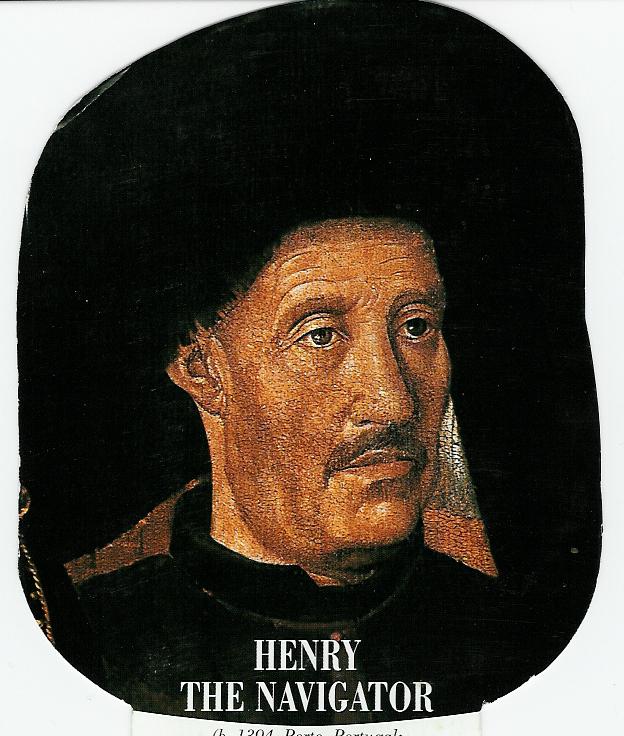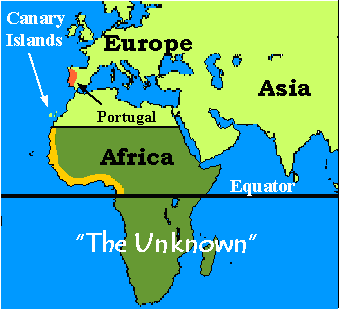



Prince Henry The Navigator

Henry The Navigator
b. 1394 Porto, Portugal
d. 1460 Sagres
Prince Henry of
Portugal,
son of the soldier-king
John I
and Philippa (sister of
Henry IV
of
England),
became popular in 1415 after the Portuguese crossed the
Strait of Gibraltar
and captured the
Moroccan citadel
(a fort or
stronghold) of
Ceuta
on
Africa's
northern coast. He was immediately appointed governor, with many ships at his
command. From then on, he devoted himself to the maritime expeditions -
particularly those that explored the
African
coast. The opening of new trade routes was a high-priority goal for
Portugal
where many people had developed the taste for such Far Eastern luxuries as
sugar, silk, spices, and precious stones. Since the
turks
and the
Mediterranean
waters belonged to
Italy,
finding a sea route to
India
was pivotal
(very important).
Henry the Navigator sponsored many exploratory expeditions along the West
African coast, and the way was prepared for the discovery of the sea route to
India. Henry the Navigator established a navigational school in southern
Portugal where he employed Arab, Jewish and Italian geographers and
astronomers to produce the best maps in Europe. He sponsored many exploratory
expeditions along the West African coast, because he planned the
circumnavigation of Africa in order to combat Islam and to establish
connections with East Africa. These expedition prepared the way for the
discovery of the sea route to India.
Though
many people at the time still believed that the world was flat, there was a
feeling, localized but spreading, that there were islands far beyond the
horizon. When he was made governor of the Algarve in 1419, Henry established
his court in Sagres at the southwest tip of
Portugal.
There he built an observatory, a shipyard and a school to train navigators and
pilots. Over the course of the next 12 years, he sent 14 expeditions down the
west coast of
Africa,
but not one of them dared to venture past Cape Bojador near the
Canary Islands.
The sailors all believed that the sun at the equator was positioned so low to
the earth that it burned the skin black and boiled the sea, where pestilent
(deadly)
monsters trolled the infernal
(hateful,
violent)
waters waiting to eat them.
Finally,
in 1443, one of Henry's expeditions succeeded in landing at Cape Blanc, a
promontory (a high point of land or rock
sticking out over the water)
farther down the coast. Thirteen years later, another sailed as far south as
the
Cape Verde Islands;
Portuguese settlers would follow, and the slave trade would flourish
(grow quickly) on
the island of Sao Tiago.
